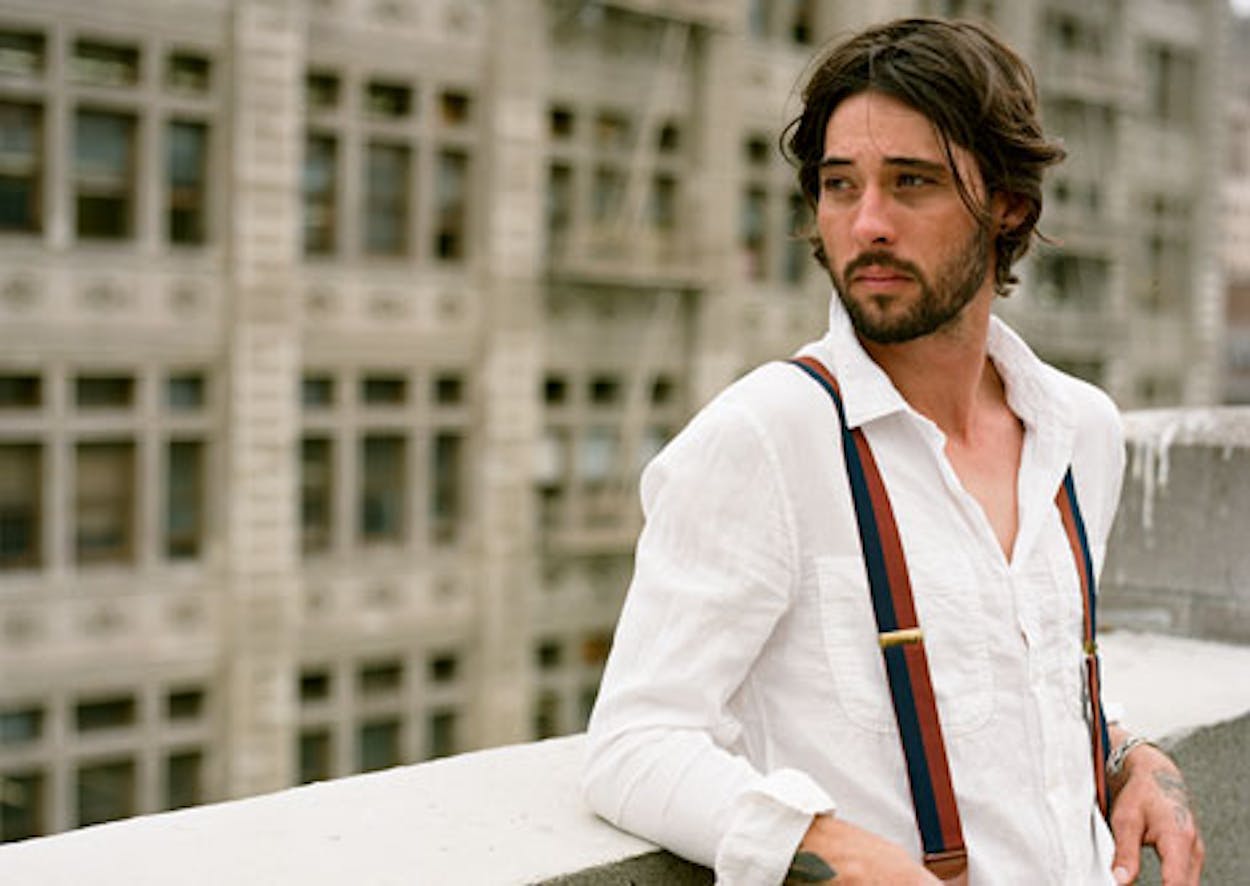Just two years ago, Junky Star, the bestselling album by Ryan Bingham & the Dead Horses, was released by the celebrated Nashville-based label Lost Highway Records. It was the most commercially successful album of Bingham’s career, reaching number two on the Billboard country charts. But on September 18, when he releases his follow-up, Tomorrowland, the record will not appear on Lost Highway or any other major label. It will be put out by his own label, Axster Bingham Records, which has no track record and no other artists on its roster.
Bingham does not have the high profile of Wilco, Jack White or Radiohead—other artists who have taken the risks and put in the hard work that come with independence for the right to make their own decisions and keep a lion’s share of the profits. But Bingham had reason to believe the time for striking out on his own was good. The success of Junky Star, his third major-label album, closely followed “The Weary Kind,” his contribution to the soundtrack of the movie Crazy Heart, which earned Bingham and his co-writer T Bone Burnett a Grammy, an Oscar and a Golden Globe.
“It’s a liberating thing to work for yourself,” said Bingham, a 31-year-old native of New Mexico who in 2004 traded a fledgling career bull riding in rodeos across Texas for a similarly itinerant life as a musician. “We’ve always been more of a road band than a band that depended on record sales or radioplay. Touring, the hard work part, doesn’t scare us. So we’re not afraid to sit in the office and sign CD’s or stuff envelopes. Running to the post office to mail CD’s is a lot less dangerous than six months on the road.”
Late last month, Bingham discussed his independence and his time spent in Texas in a telephone conversation from his home in California.
Parts of this record lean in a more rock-oriented direction than we’ve heard from you.
For the first time in my career, I had some time off before recording and it’s really the first opportunity I had to sit down at home with some electric guitars and experiment. I was listening to a lot of Jimmy Page and Jimi Hendrix. And the Clash. And the truth of the matter is that rock and roll is a lot more fun to play live. My last record was a little slow and a lot of the songs were dark and sad. Playing those songs every night got tough sometimes. I wanted a record this time around that would be fun to play live.
There’s a lot of mythology around your time in Texas—ranch work, rodeo riding and what sounds awfully close to homelessness. How lean were the Texas days?
They were pretty rough. I went out on my own at seventeen. I was fortunate to have a lot of friends in a bunch of different towns. Eventually, I started working for a rodeo company in Del Rio. I always had couches to stay on, but never anywhere I felt was home. The decision I eventually made, to live out of the car and be on my own, was really my decision. It made me feel uncomfortable to rely on other people and ask for favors, so a lot of times I felt more at ease sleeping in the truck or camping out somewhere than asking people for a place to sleep and some food to eat.
Music rescued you.
I truly believe that. I started playing songs and from the get-go, it was really therapeutic. It’s always helped to say stuff out loud. The songs weren’t really written for anybody to hear. A lot of the places I played early on were rough roadhouses, honkey-tonks and dive bars. People were there to get drunk and fight. I could sing the songs all night long and nobody was listening to the lyrics as long as the guitars were loud and the tempos were up. But it gave me the opportunity to sustain myself. I could make 40 bucks a night and pay for gas and food.
In an election year, Tomorrowland, an album about the small guy fighting back, sounds like a protest record.
I’m not a political person or a protest songwriter. But I think what’s going on around me influences me like anybody else—social issues, corruption, the economic situation. For a lot of people, these are lean times. Drive though Detroit, or Baltimore, or Hartford, Connecticut, and they look like war zones. As touring musicians, we see a lot of harsh realities; the places we experience and the characters we see at certain times of the night, most people don’t see. As a songwriter, I’m not trying to describe the impressions we collect on the road specifically, but more the emotion, the feeling that exposure to that stuff leaves you with.
I suppose it could leave you cursing someone or something you think is to blame. This album has enough four-letter words on it I’d have expected one of those old black and white Parental Advisory warning stickers on the package.
It’s part of who I am and how I talk. Every now and then, everyone has to get a four-letter word off his chest. I just have a few more than the next guy.







